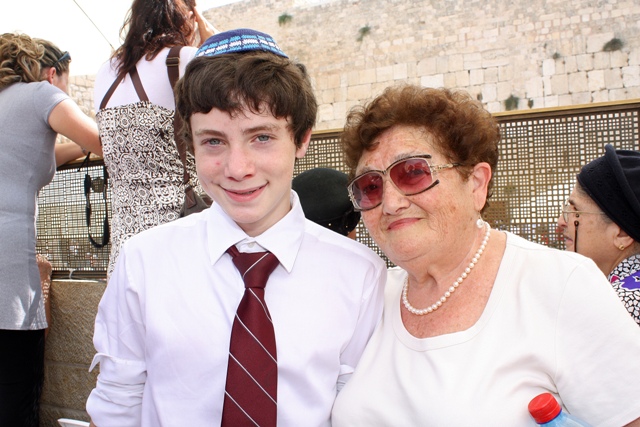Our interest-free loans help our borrowers pursue dreams around Jewish family, community, health, services, culture, traditions, and more. Here are just a few Jewish holidays and celebrations!

Eli received an interest-free Coronavirus Impact loan to keep his photography business afloat during the Covid pandemic. He works with many clients on Jewish calendar events.

Tamara received an interest-free Life Cycle Loan to travel to Israel to attend her grandson’s bar mitzvah.

Sarah received interest-free Debt Consolidation and Life Cycle loans to help pay for her Jewish wedding.
Jewish Holiday Information
At Hebrew Free Loan, we believe in supporting, celebrating, and empowering our community. We celebrate Jewish holidays and traditions and provide interest-free loans to help Jewish individuals in Northern California overcome financial challenges and pursue life dreams.
Tu B’shevat — January 17, 2022
Also known as Tu BiShvat, honored during the 15th day of the Hebrew month of Shevat. The arrival of spring is commemorated on this occasion, also known as the New Year of the Trees. Picnics, tree planting, and fruit-eating are all part of the festivities. In addition to this, the day is observed as an ecological awareness day in contemporary Israel, with trees planted in commemoration.
Purim — March 17, 2022
The Festival of Lots commemorates is a Jewish holiday that celebrates the rescue of the Jews of ancient Persia from destruction at the hands of Haman (an Achaemenid Empire official), who chose this day for his plot to execute the Jews by casting lots. This plot was put to a halt by Queen Esther and her uncle, Mordechai.
Traditionally, the holiday of Purim is honored by:
- A reading Megillat Esther (the scroll of Esther)..
- Festivity comprised of costumes and noisemakers.
- Enjoying hamantashen, a triangle-shaped pastry typically filled with jam and other holiday treats.
- Mishloach manot (gift packages) are given.
- Tzedakah (donations for the purpose of making the world a better place) to the needy.
Pesach / Passover — April 16 – 23, 2022
Passover is an eight-day festival that commemorates the Jewish exodus from slavery in Egypt. During this time, we remove all chametz (leavened food) from the house and only eat unleavened items to commemorate the urgency with which the former slaves fled Egypt, which did not allow enough time for their bread dough to rise. During our Passover seder meals, the story of the Exodus is retold.
Yom Hashoah – April 28, 2022
On December 28, 1949, Israel observed the first Yom Hashoah, Holocaust Remembrance Day. Yom Hashoah is observed with memorials and dedications to those who died during the Holocaust (approximately six million European Jews). Since the early 1960s, the sound of a siren has stopped traffic and pedestrians throughout the State of Israel for two minutes of silence on Yom Hashoah.
Yom Hazikaron – May 4, 2022
Yom Hazikaron in Israel honors veterans, fallen military personnel who fought to protect Israel, and those who died as a result of terrorist acts. Yom Hazikaron, the Israeli Memorial Day, has a different character and mood than Memorial Day in the United States. All places of public entertainment (theaters, cinemas, nightclubs, pubs, etc.) are closed for 24 hours (from sunset to sunset). The most noticeable feature of the day is the sound of a siren, which is heard twice throughout the country and causes a two-minute “standstill” in all traffic and daily activities. In addition, poems are frequently read, and other ceremonies are held in remembrance.
Yom Ha’atzmaut – May 5, 2022
Jews all over the world celebrate Israel Independence Day, which commemorates the Israeli Declaration of Independence in 1948.
Shavuot — June 5 – 6, 2022
Shavuot combines two observances: the biblical early summer grain harvest and later, the receiving of the Torah on Mount Sinai. Shavuot is celebrated through special prayers, a reading Megillat Ruth (the book of Ruth) and Torah study and related topics late into the night..
Tisha B’av – August 7, 2022
Tisha B’Av, the 9th day of the month of Av, is an annual day of fasting in remembrance of major disasters in Jewish history, such as the destruction of Solomon’s Temple and the Second Temple in Jerusalem at the hands of the Neo-Babylonian and Roman Empires.
Rosh Hashanah — September 26 – 27, 2022
Rosh Hashanah,”the head of the year” is the Jewish New Year. Rosh Hashanah opens the Days of Awe, a 10-day period of introspection, renewal and atonement that culminates in Yom Kippur. The sound of the shofar (a ram’s horn) is used to herald in the new year.
Yom Kippur — October 5, 2022
The Day of Atonement is the holiest day of the Jewish calendar.. The day focuses on atonement and repentance. Typically one fasts, refrains from physical pleasure and from work. Sounding the shofar (a musical horn) brings Yom Kippur to a close.
Sukkot — October 10 – 16, 2022
This harvest festival is named after the Sukkot, or temporary homes, that are decorated with fruit and vegetables to commemorate the booths in which the Jews slept during their exodus from Egypt. Also known as the Festival of Booths, processions with the lulav (palm branch with myrtle and willow) and etrog (citron) are held to commemorate the event.
Shemini Atzeret — October 16 – 17, 2022
Shemini Atzeret is mentioned in the Bible, but its exact function is unclear. In Second Temple times, it appears to have been a day devoted to the ritual cleansing of the altar in the Temple. With the destruction of the Temple in 70 CE, this function of the day became obsolete. Although it marks the beginning of the rainy season in Israel and, therefore includes the year’s first prayer for rain, its lack of clear definition may have provided the impetus to celebrate it in conjunction with Simchat Torah, a celebration of the conclusion of one and the beginning of another annual cycle of readings from the Torah. This latter holiday probably originated during the medieval period.
Simchat Torah — October 18, 2022
Simchat Torah, (the joy of the Torah) is held on the last day of Sukkot (“Festival of Booths”). Simchat Torah, which occurs the day after Shemini Atzeret outside of Israel, celebrates the end of the annual Torah reading cycle and the start of the new one. Singing, dancing, and joyful processions of individuals carrying Torahs and youngsters waving flags are all part of the festivities.
Chanukah / Hanukkah — December 19 – 26, 2022
The Maccabees led a group of Jews in a successful war against the invading Syrian-Greeks in 167 BCE, who had desecrated the perpetual light of the Second Temple. One day’s supply of oil miraculously lasted eight days until more could be located. To commemorate this miracle, the Chanukah menorah is lit for eight nights. Children play dreidel, and oil-fried delicacies are among the many Hanukkah traditions.
Wanting to learn more about Jewish holidays and how Hebrew Free Loan can help make your special occasion perfect? Contact us and talk with one of our team!
